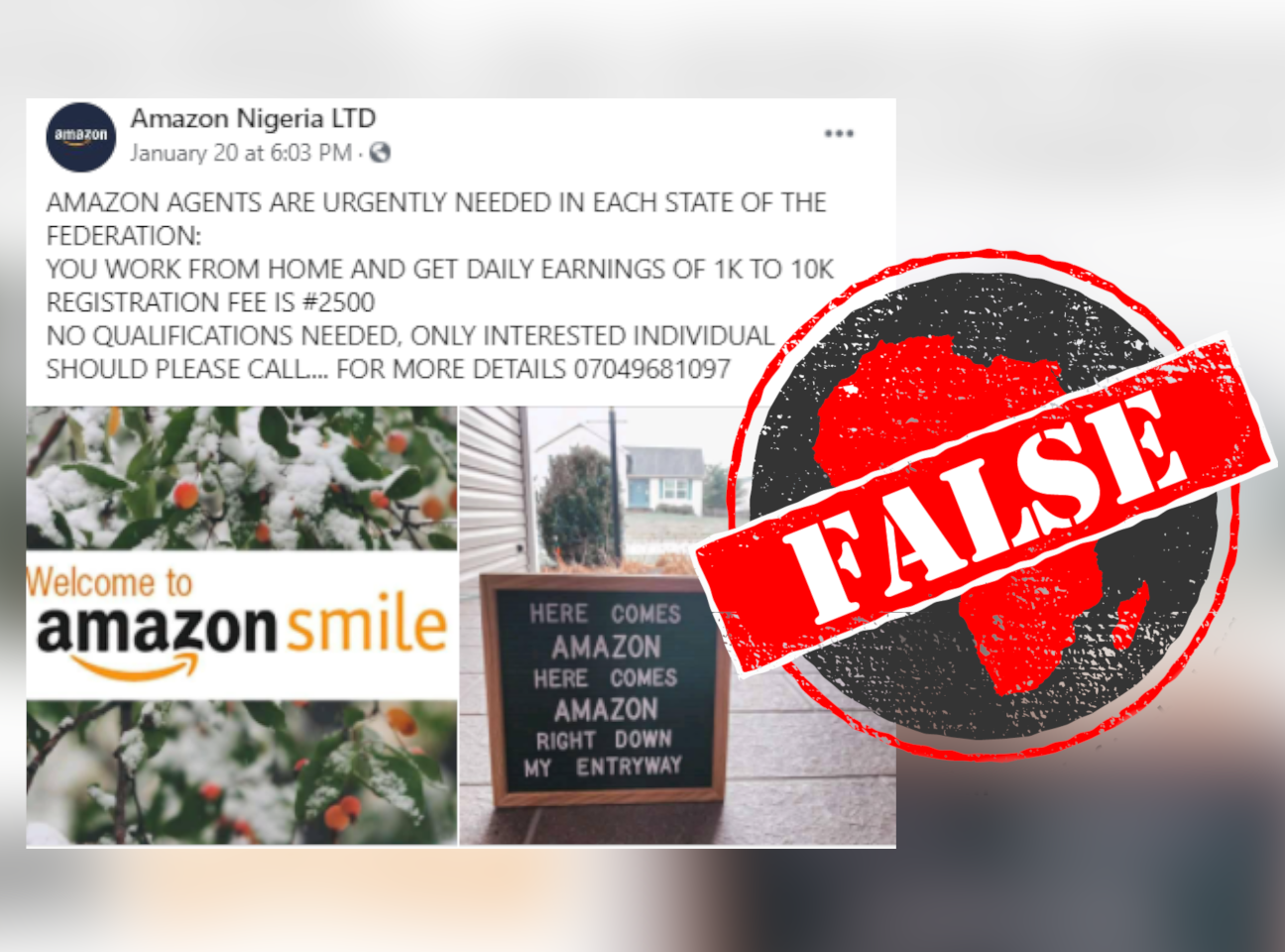A recent Facebook post claims that the US multinational tech company Amazon is recruiting agents in all 36 states of Nigeria.
“Amazon agents are urgently needed in each state of the federation,” it reads. “Your work for home and get daily earning of 1K to get 10K. No qualification needed, only interested individual should please drop your WhatsApp number and location.”
The message was posted on the “Fish Farmer Association Of Nigeria” group page, which has 156,000 members.
A second version, posted on the Facebook page “Amazon Nigeria LTD”, adds that interested people would have to pay a N2,500 registration fee to stand a chance of recruitment.
But are these jobs for real?

Tell-tale signs of scam
From the poorly written text to the lack of education requirements and promise of enormous earnings, the post bears tell-tale signs of a scam.
And “Amazon Nigeria LTD” is a suspicious page. It was created on 20 January 2021, has just 45 likes, and the job ad is its only post.
Africa Check sent a message to the WhatsApp number given in the post. We got a return call in which a male voice promised to add us to a WhatsApp group where we would be given “all the information about the Amazon opportunity”.
The man did not introduce himself and refused to answer further questions, finally ending the call abruptly after speaking angrily. Further calls went unanswered.
Company not registered, no reports of recruitment
We found no evidence of such recruitment on Amazon’s Facebook page and Twitter timeline. Announcements of such nationwide recruitment are usually published by reputable Nigerian media outlets. We found none.
Africa Check also ran a search for “Amazon Nigeria LTD” in the country’s Corporate Affairs Commission database and found no company registered with that name.
Republish our content for free
For publishers: what to do if your post is rated false
A fact-checker has rated your Facebook or Instagram post as “false”, “altered”, “partly false” or “missing context”. This could have serious consequences. What do you do?
Click on our guide for the steps you should follow.
Publishers guideAfrica Check teams up with Facebook
Africa Check is a partner in Meta's third-party fact-checking programme to help stop the spread of false information on social media.
The content we rate as “false” will be downgraded on Facebook and Instagram. This means fewer people will see it.
You can also help identify false information on Facebook. This guide explains how.




Add new comment